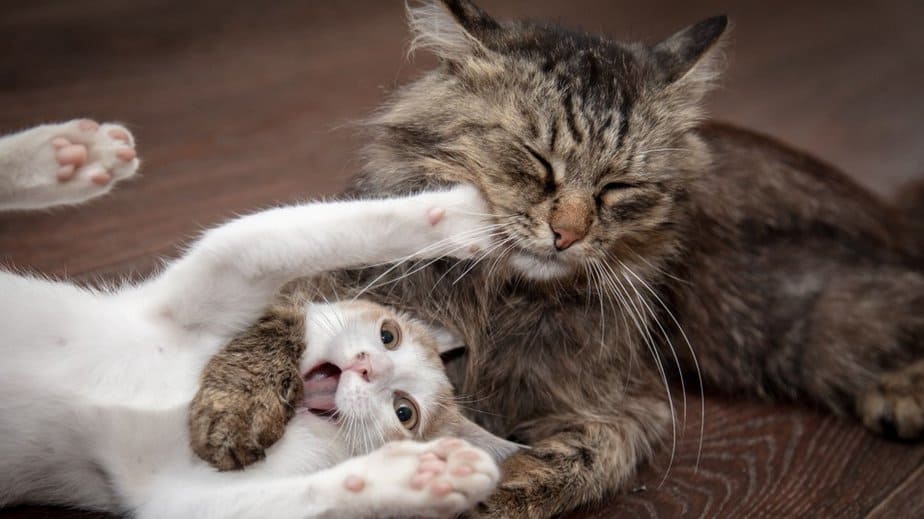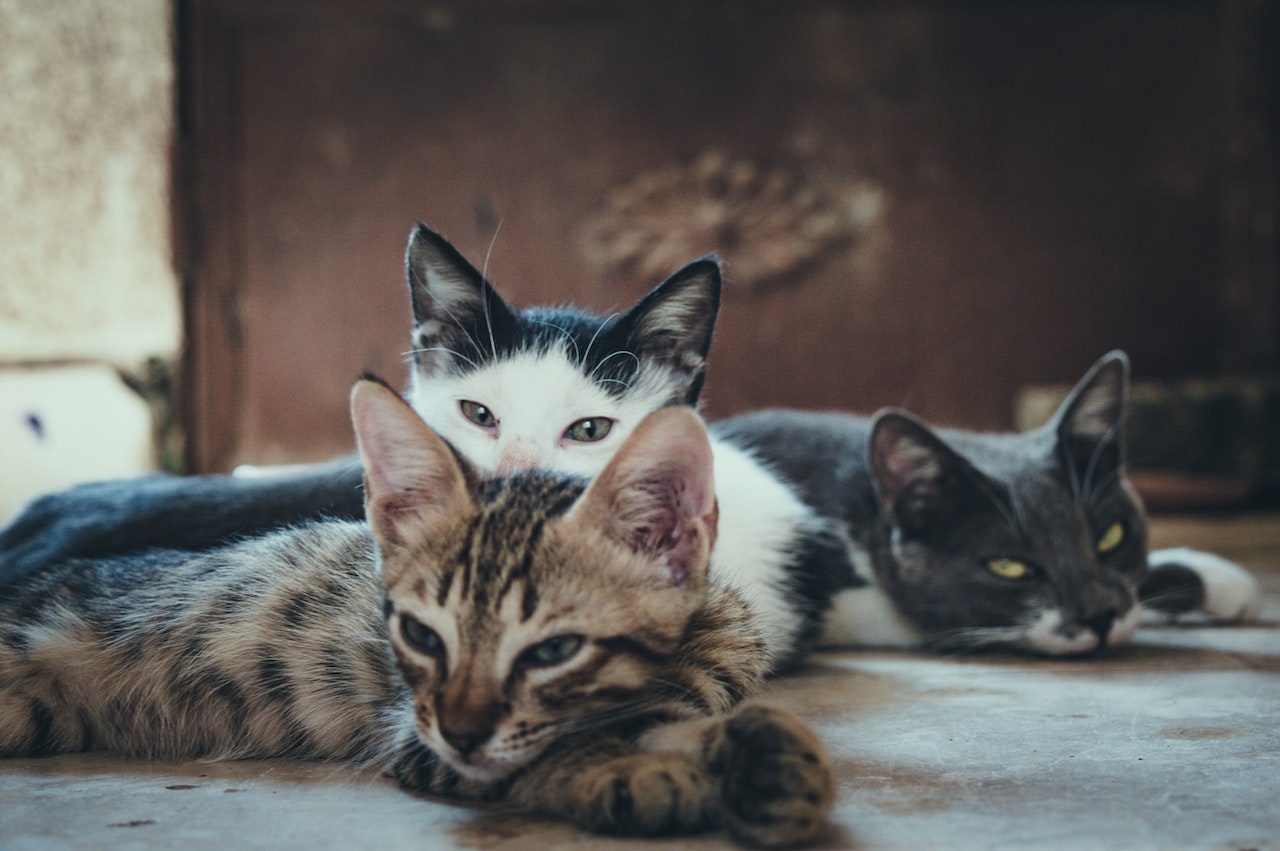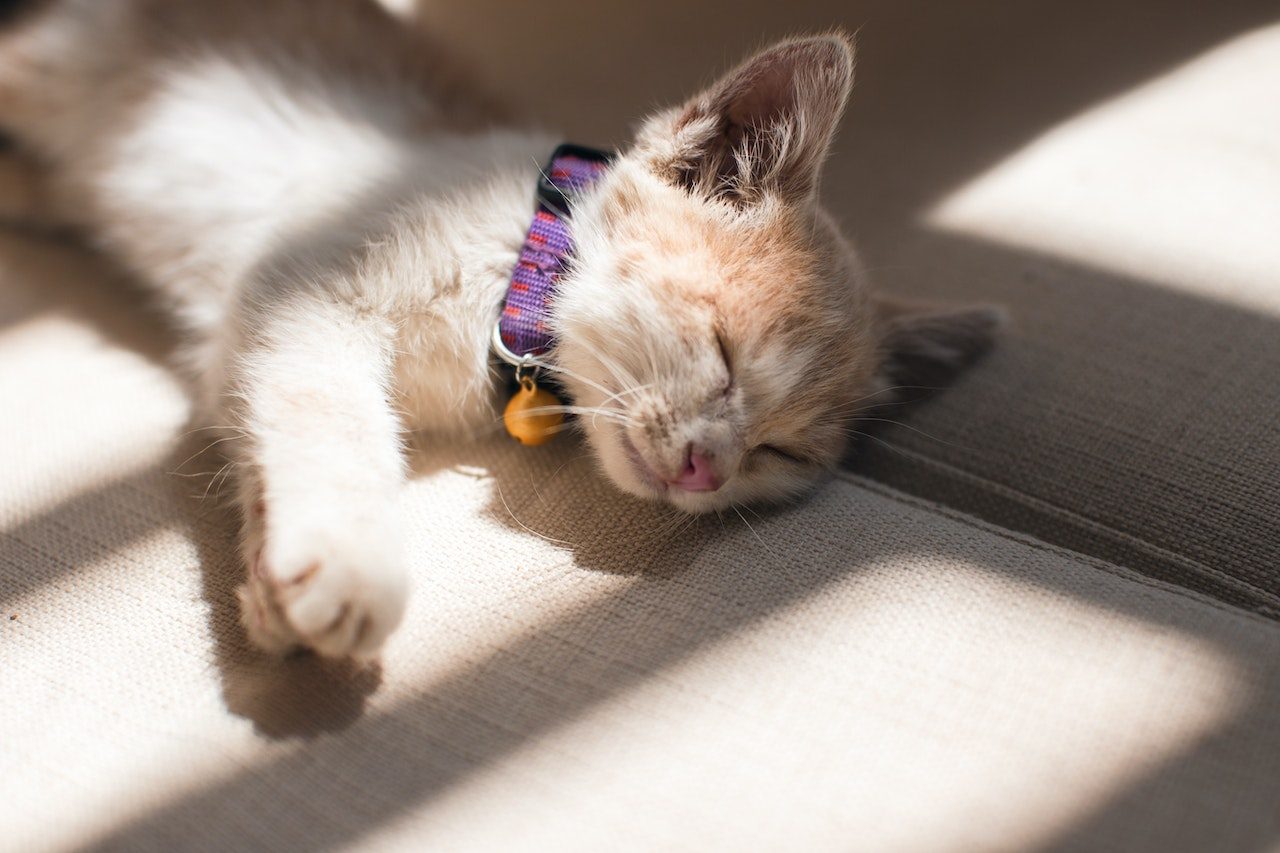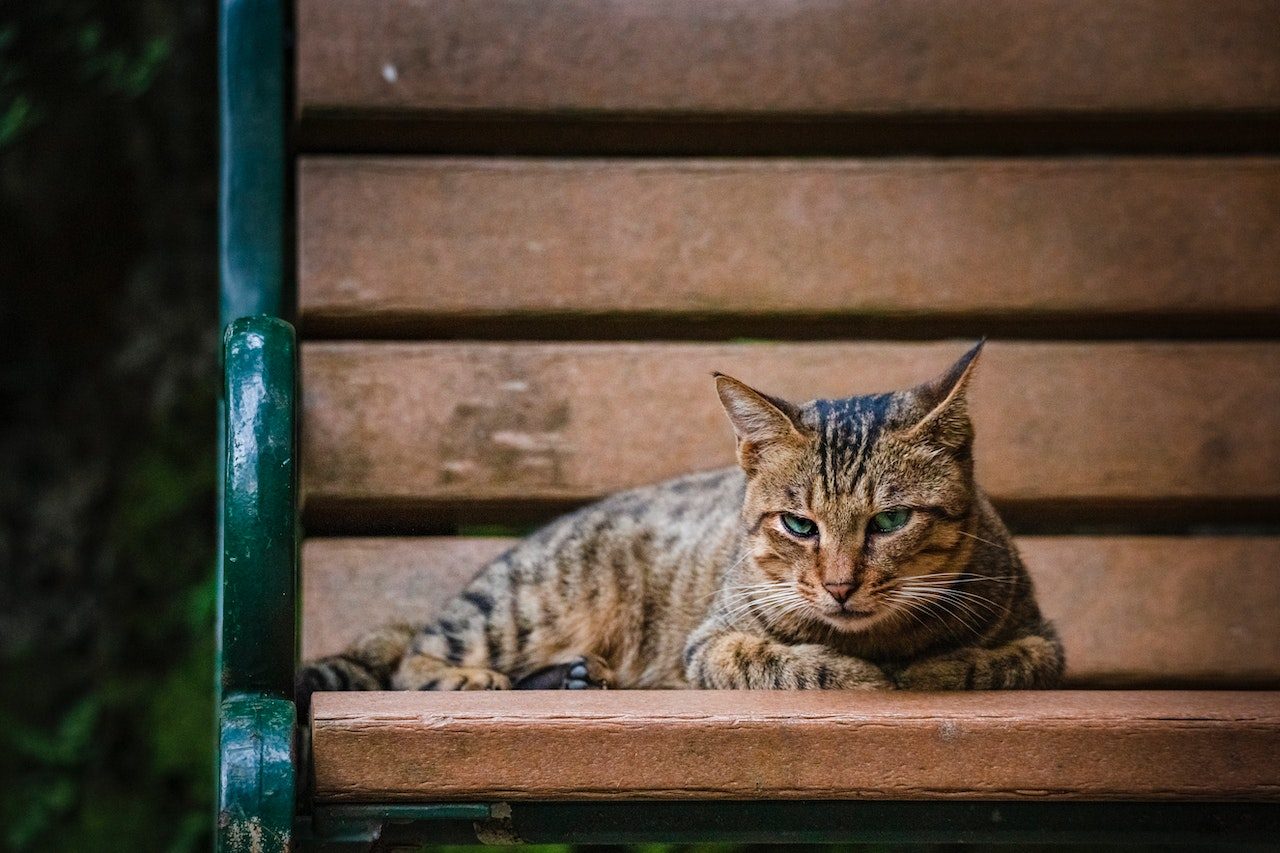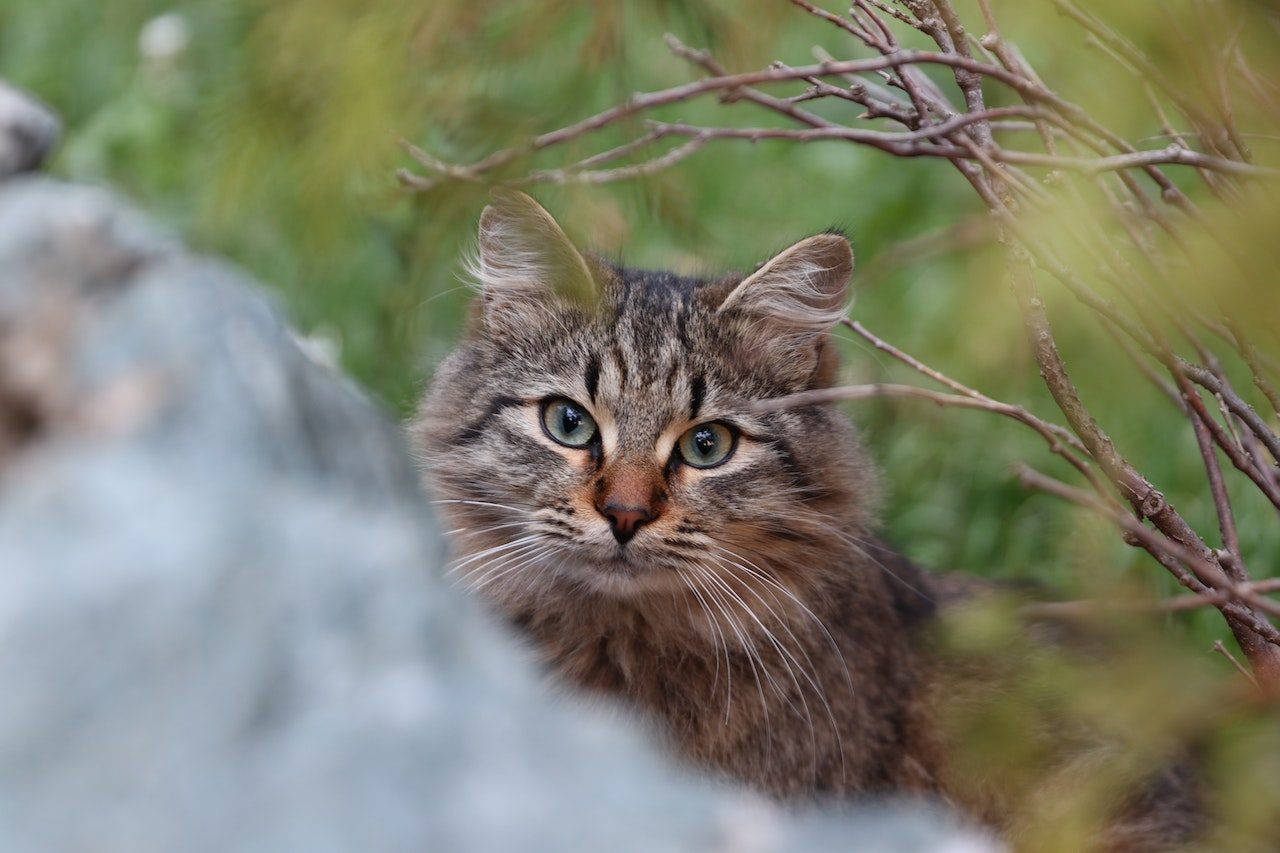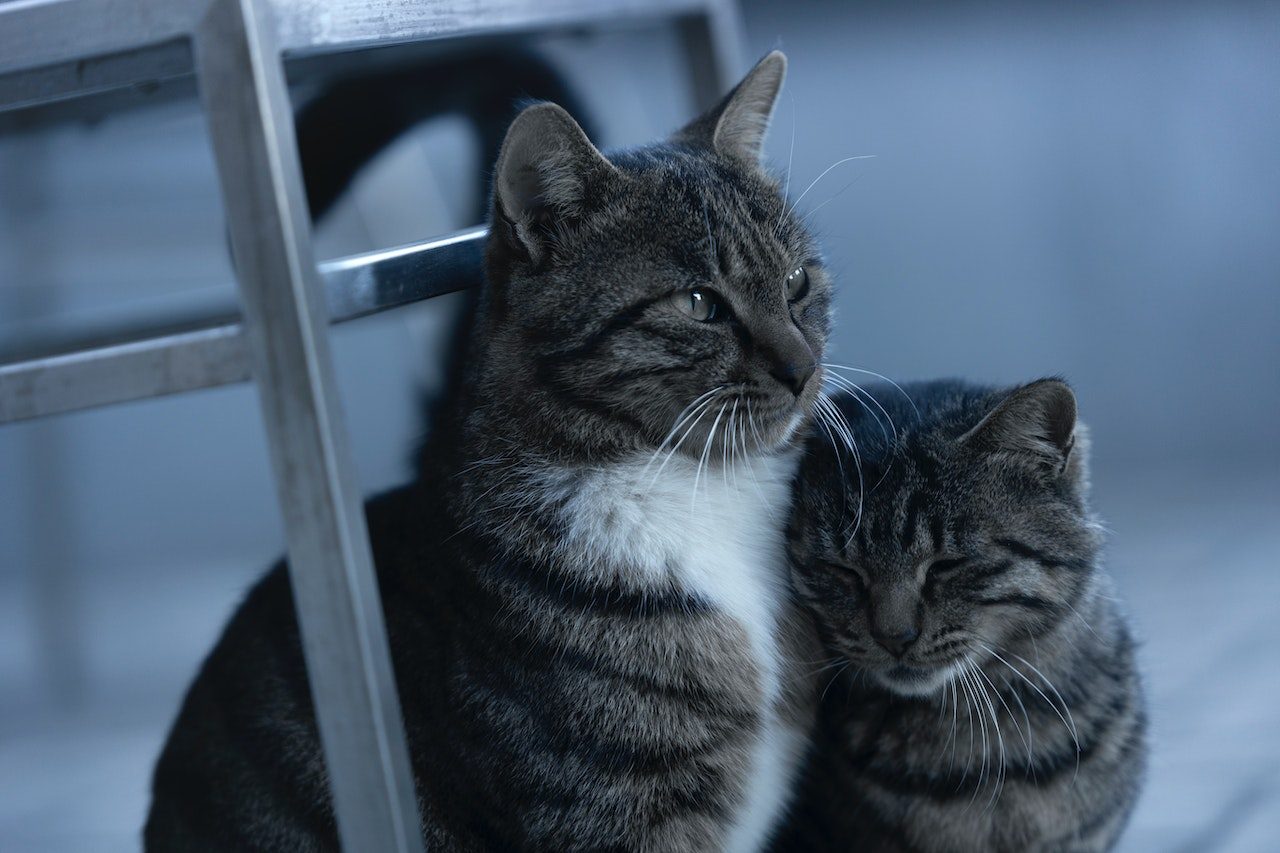📖 Table of Content:
Why do mother cats attack their older kittens? I mean, they’re still her kids, even if they’re grown up a bit. So why would kitty mama do such a thing? It might leave us baffled, but there’s more to it than meets the eye.
You know how every mother does things deliberately? The mother cat must have a rationale for her activities. Felines are guided by their instincts so there’s a good explanation behind this behavior. Still, this conduct may appear to be a little harsh for humans.
It’s because we frequently overlook how much the human world varies from the animal world. How could you not when we think of them as our furbabies? Cats have been domesticated for a long time and they play an important role in our lives. So we’ve attempted to humanize them in a variety of ways.
However, we’re two entirely different species at the end of the day. This might be one of the reasons we have difficulty understanding some feline behavior.
Some people believe that raising a cat is simple. After all, felines don’t even require as much exercise as their canine counterparts do. You don’t even have to teach them to use the bathroom because they do it themselves.
However, if we’re being absolutely honest, dealing with felines might be a challenge sometimes.
At times, they have sudden mood swings and grow angry when you want to snuggle with them. You never know what really goes on in that mind of theirs. Living with cats makes us accustomed to some of their behaviors. Over time, they just appear to us as typical and nothing out of the ordinary.
Still, there are some things that we can’t grasp, no matter how hard we try.
Why do mother cats attack their older kittens?
Observing a mother cat who’s attacking her kittens in some way seems like it can’t be justified. This might be a frightening experience for cat owners who have never watched their pet show such behavior.
There are various reasons a mother cat could bite and even kick her kittens. The most frequent explanations include teaching them who is in charge.
Furthermore, she might be establishing territory, using harsh discipline, or it’s a part of her training. Although the mother cat usually has the best intentions, it might appear hostile.
But why do mother cats attack their older kittens? Is it normal? Does she know they’re her kids? Is there any reason or some good explanation for her exceptionally nasty conduct toward her kittens?
There are various reasons your cat has started acting strangely, or so you thought. Most of the time, this particular behavior is thought to be perfectly normal, but it can occasionally go out of hand. Just like you didn’t know why cats jump on your back from time to time.
As the owner of the mother cat, you must understand when to intervene and when not to. The main reason a mother cat would treat her kittens cruelly is that she’s trying to educate her older kittens on how to exist in the outside world.
She’s presumably teaching them how to fight and hunt. As a result, they’re more prepared for whatever situation they may encounter. When you think about it, she’s doing them a favor.
1. They’re old enough to take care of themselves
At one point, a mother can decide that her kittens aren’t babies anymore and they can fend for themselves. This is when she can start gradually rejecting them in various ways. This way, she’s letting them know that they’re no longer wanted.
If the kittens are still fairly young, the mother usually lets them remain at her side. That is, until she thinks they are mature enough to be left alone and shoves them out of the way. This is how cats frequently act when their babies reach around the 14-week mark.
When the kittens are old enough, they will try to chase their mother cat away. This will push their beloved, aging mother to seek new territory. So while it’s upsetting to see, there’s a good reason for it.
However, the mother cat can easily sense this hostility and attempt to be the one who chases them first. That’s why it’s possible she’ll attack her older kittens to free up some space and avoid getting kicked out of her territory.
Otherwise, perhaps she isn’t trying to send them off into the unknown world for good. Maybe she’s just fed up with them for the time being and wants some alone time. It’s rare that she gets alone time from her tiny monsters.
Your mama cat has been constantly caring for her kittens. This includes 24/7 supervision that requires feeding and bathing them, as well as teaching them important lessons and playing with them. She deserves some rest!
2. They’re sick
Most incidences are on the milder side of the spectrum – the mother cat is simply rough with her kittens but doesn’t actually do anything to hurt them. She only gives off a couple of warnings without causing some serious trouble.
Unfortunately, this isn’t always the case. Sometimes, your cat will go too far and injure or, in the worst-case scenario, kill her older kittens. That said, a mother cat needs to have serious intentions of attacking and hurting her older kittens in order to do so.
It might be a disease or a deformity, but cats frequently act this way when they feel something’s wrong with the kitten. As a mother, she firmly believes that the chances of her kitten surviving are very small. Therefore, her instincts kick in and she resorts to turning on her own child.
You’ll see many cases like these, even in the canine world. Oftentimes, we tend to forget that the animal kingdom can be a cruel place and that animals will follow their instincts all the time.
Be that as it may, if you see a mother cat attacking her kitten over and over, try separating them.
3. She’s scared
It’s really horrifying having to witness mother cats attacking their kittens. But remember what we said about their strong instincts? So keep in mind that if a cat feels threatened, she may become unfriendly to her young.
If this happens, she might leave them to rescue herself. Even though we’d like to think that she’d always choose to protect her kittens, it’s not always the case.
A cat or other animal threatening her, or a loud, strange sound that frightens her, can be the cause of this behavior. Although there might be other reasons, this situation is quite common as well, especially if they’re outdoor cats.
If this is occurring in your case, stick around until the next section, where I’ll explain how to stop your cat from biting her kittens.
4. She’s jealous
Another reason leading to your cat’s violent behavior toward her older kittens is jealousy. While expecting, cats are often lavished with care and attention by their owners. You buy them all the high-quality foods and different kinds of expensive treats.
Not to mention the fact that she takes up your entire bed with zero regrets. You can’t help but cuddle and kiss your pregnant purrer all day and feel the babies inside of her. All she does during her pregnancy is simply soak in all the love you have to offer.
Receiving the best food available, cuddling whenever they like, and having their bowls filled without having to beg for more is a dream come true for most cats. So why change anything?
Throughout this period, your cat grows accustomed to this undivided attention. However, once she gives birth, she may begin to feel abandoned. The reason for this is because you are overly focused on the new family members.
Even if you aren’t intentionally neglecting the mother, the fact that she was used to your entire attention before this predicament could make her envy her children.
The mother cat may hiss and punch her kittens. If the behavior doesn’t stop soon or becomes even more prominent, you should try separating them for a while. Even though felines have strong instincts, the maternal ones might be a bit late sometimes.
5. She’s hungry
“Why do mother cats attack their older kittens? Could it be that they’re eating her food?”
We know that our furry companions can’t stay hungry for long. They require feeding ever so often. If you were to ask them, they’d probably say how they’re all starving. I’m not sure how they manage to always be insatiable and greedy.
Imagine you’re a hungry mom exhausted by her older kittens. All they want to do is jump around and play. You’re walking and your kids are jumping at you; honestly, you’re not feeling it. You’re starving because being a mom cat can be draining for sure.
They’re all over the place and never calm down, even for a minute. These little hooligans can drain your energy levels quickly. Therefore, the mother cat needs to recharge from time to time with a delicious snack.
It’s much simpler for her to eat in peace and not be bothered by her kittens. She likes silence and when there aren’t any distractions, disobedience, or noise from the little ones.
If any kittens come after her, she knows how to put them back in their place. Usually, she’ll spin around and hiss at them. They are oftentimes surprised and taken aback at their mother’s harsh behavior, so they return to their original place and wait for her to return.
6. Hormone and stress problems
A range of variables can contribute to feline maternal behavior problems. Researchers have revealed that particular genes in cats influence several types of mothering behavior.
If a mother cat is missing or has a defective maternal-related gene, she may be unable to mother her litter normally. Unfortunately, we wouldn’t know this until she gives birth to her kittens and enters the motherly role.
Problems with maternal activity are also caused by hormonal fluctuations. A hormonal imbalance can lead a cat to have a false pregnancy, in which she exhibits indications of being pregnant, including labor symptoms such as contractions, despite not being pregnant.
Stress might also lead to similar issues in the mother cat’s behavior. Felines are compassionate creatures and any kind of change might affect them. Furthermore, first-time mothers may be more prone to behavioral disorders than those who have had kittens.
7. Playtime
Sometimes, it’s just not how it seems. You might think you saw a mother cat attacking her older kittens, but you could be wrong. Perhaps what you saw doesn’t have anything to do with the mother cat kicking and biting her kittens in a cruel way.
It isn’t uncommon for a feline mom to play with her kittens because this teaches them some important life lessons. Therefore, perhaps mother cats who attack their older kittens are actually doing them a favor.
You may know that there are recommended ways to play with your cat. Similarly, there are some games where you shouldn’t involve your feline. This is all because your pet might hurt you, intentionally or not.
When she’s in the mood, the mother cat might enroll in a playtime session with her furbabies. During playtime, they might scratch, kick, and even bite each other. However, these bites aren’t meant to break the skin or hurt the slightest bit, so you shouldn’t worry.
As a result, it’s pawsible that the mother cat isn’t attacking her older kittens but is simply playing with them. Sure, it looks nerve-racking, but we all need to experience some tough love. What better way to gain that experience than from someone who loves you the most?
8. Lack of space
Felines in the wild may be rather fierce when it comes to their territory. They love and cherish what they have and will fight for it to the extremes.
Even if our domesticated cats have access to everything, they may still follow their deeply ingrained impulses. Sure, she doesn’t have to compete for food or a comfortable spot on your bed.
However, if you have spoilt cats like mine, you may occasionally observe this strange behavior. A mother cat who attacks her older kittens out of the blue might be trying to send them a clear message.
Perhaps she doesn’t like the fact that they’re occupying her space and using her litter box. This is when she’ll start marking her territory. Look out for scratches on the sides of the litter box – it’s a warning to her older kittens to back off.
So make sure there’s enough room for everyone. If it turns out to be a real problem and a struggle for the mother cat, think about purchasing extra equipment. Consider adding another litter box and buying some new toys and beds for the kittens to use.
Final thoughts
Mother cats may attack their older kittens to encourage them to become independent and find their own territories. This behavior is part of the natural weaning process and may also occur if the mother cat becomes pregnant again. It’s important to let the mother cat do this, but you can provide a safe space for the kittens during the transition
